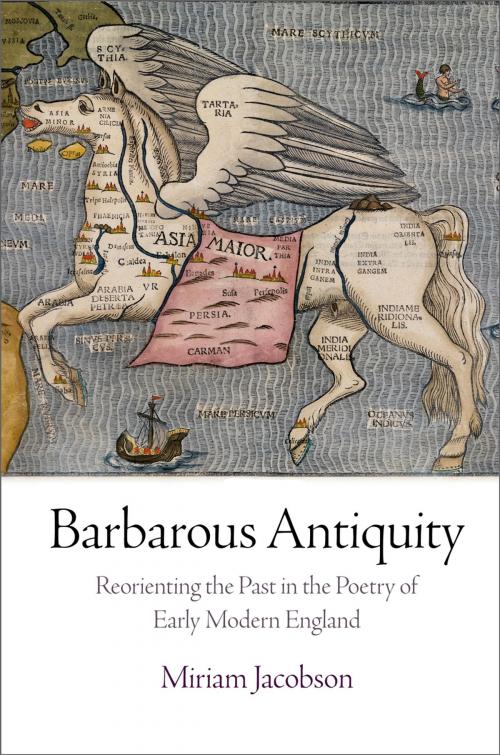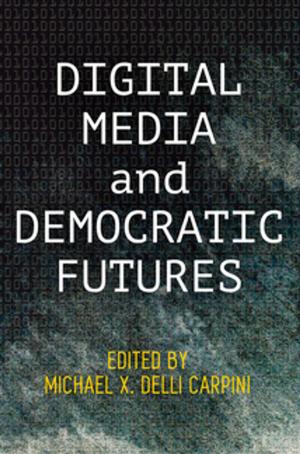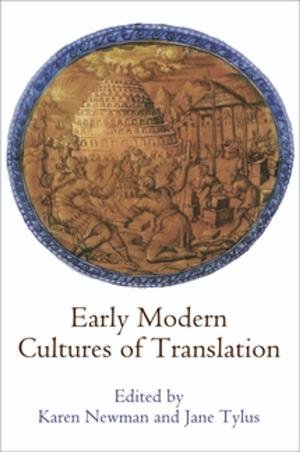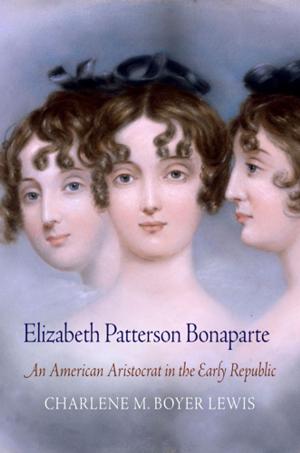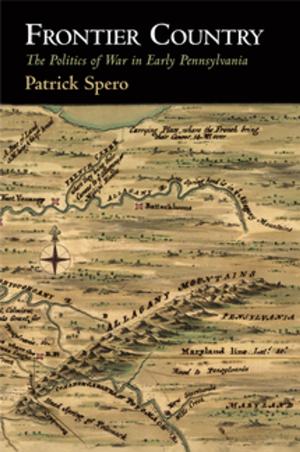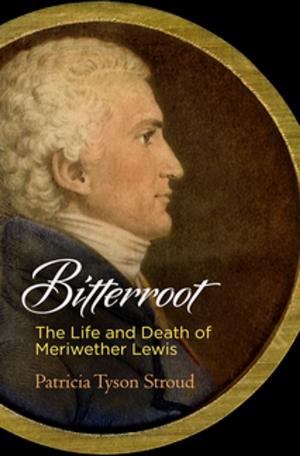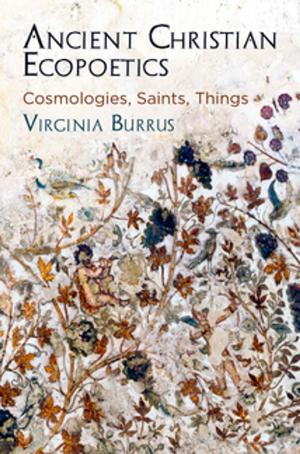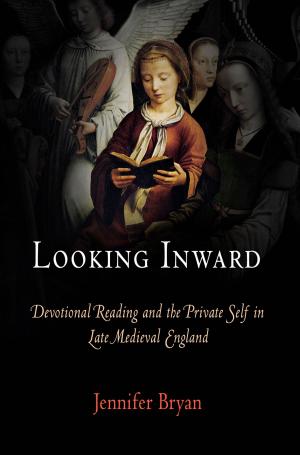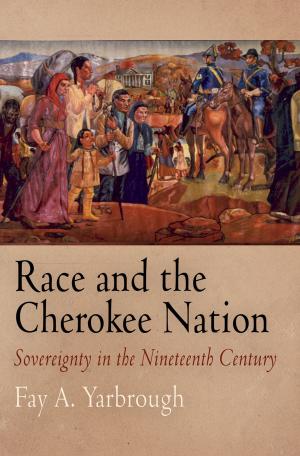Barbarous Antiquity
Reorienting the Past in the Poetry of Early Modern England
Fiction & Literature, Literary Theory & Criticism, British| Author: | Miriam Jacobson | ISBN: | 9780812290073 |
| Publisher: | University of Pennsylvania Press, Inc. | Publication: | August 25, 2014 |
| Imprint: | University of Pennsylvania Press | Language: | English |
| Author: | Miriam Jacobson |
| ISBN: | 9780812290073 |
| Publisher: | University of Pennsylvania Press, Inc. |
| Publication: | August 25, 2014 |
| Imprint: | University of Pennsylvania Press |
| Language: | English |
In the late sixteenth century, English merchants and diplomats ventured into the eastern Mediterranean to trade directly with the Turks, the keepers of an important emerging empire in the Western Hemisphere, and these initial exchanges had a profound effect on English literature. While the theater investigated representations of religious and ethnic identity in its portrayals of Turks and Muslims, poetry, Miriam Jacobson argues, explored East-West exchanges primarily through language and the material text. Just as English markets were flooded with exotic goods, so was the English language awash in freshly imported words describing items such as sugar, jewels, plants, spices, paints, and dyes, as well as technological advancements such as the use of Arabic numerals in arithmetic and the concept of zero.
Even as these Eastern words and imports found their way into English poetry, poets wrestled with paying homage to classical authors and styles. In Barbarous Antiquity, Jacobson reveals how poems adapted from Latin or Greek sources and set in the ancient classical world were now reoriented to reflect a contemporary, mercantile Ottoman landscape. As Renaissance English writers including Shakespeare, Jonson, Marlowe, and Chapman weighed their reliance on classical poetic models against contemporary cultural exchanges, a new form of poetry developed, positioned at the crossroads of East and West, ancient and modern. Building each chapter around the intersection of an Eastern import and a classical model, Jacobson shows how Renaissance English poetry not only reconstructed the classical past but offered a critique of that very enterprise with a new set of words and metaphors imported from the East.
In the late sixteenth century, English merchants and diplomats ventured into the eastern Mediterranean to trade directly with the Turks, the keepers of an important emerging empire in the Western Hemisphere, and these initial exchanges had a profound effect on English literature. While the theater investigated representations of religious and ethnic identity in its portrayals of Turks and Muslims, poetry, Miriam Jacobson argues, explored East-West exchanges primarily through language and the material text. Just as English markets were flooded with exotic goods, so was the English language awash in freshly imported words describing items such as sugar, jewels, plants, spices, paints, and dyes, as well as technological advancements such as the use of Arabic numerals in arithmetic and the concept of zero.
Even as these Eastern words and imports found their way into English poetry, poets wrestled with paying homage to classical authors and styles. In Barbarous Antiquity, Jacobson reveals how poems adapted from Latin or Greek sources and set in the ancient classical world were now reoriented to reflect a contemporary, mercantile Ottoman landscape. As Renaissance English writers including Shakespeare, Jonson, Marlowe, and Chapman weighed their reliance on classical poetic models against contemporary cultural exchanges, a new form of poetry developed, positioned at the crossroads of East and West, ancient and modern. Building each chapter around the intersection of an Eastern import and a classical model, Jacobson shows how Renaissance English poetry not only reconstructed the classical past but offered a critique of that very enterprise with a new set of words and metaphors imported from the East.
